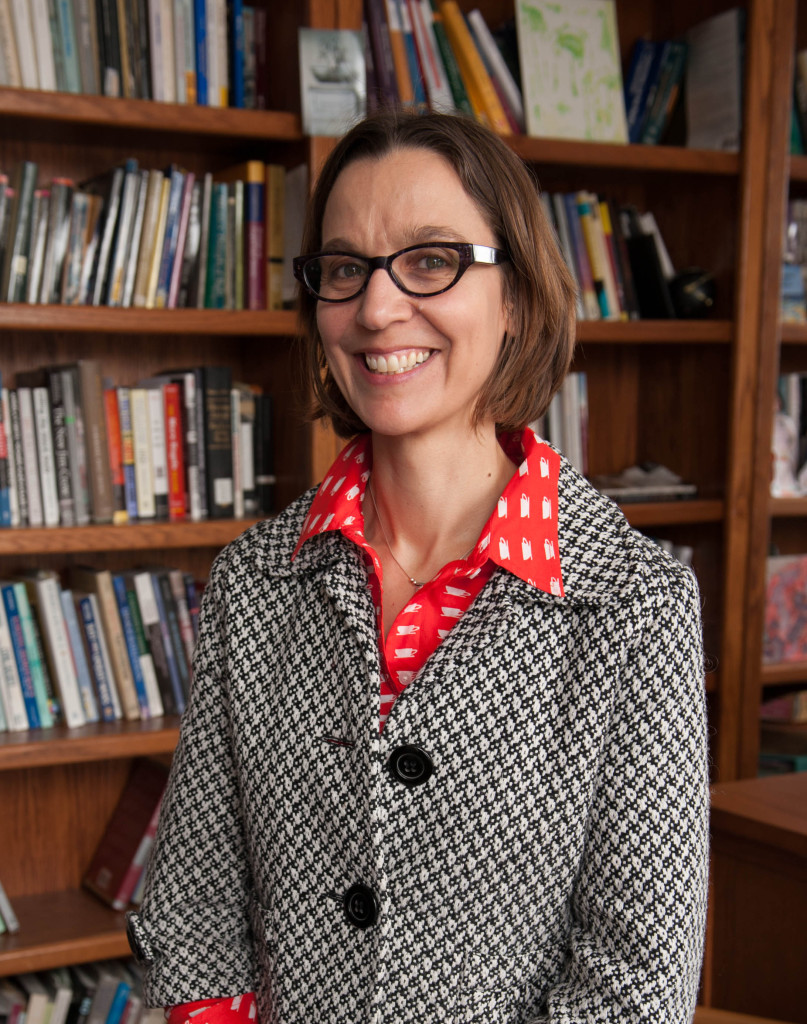Professor Jill Locke, who teaches political theory courses in the Political Science department and directs the Gender, Women, and Sexuality Studies program, will spend the 2014-15 academic year as a member of the Institute for Advanced Study in Princeton, NJ. She will conduct research on children’s political activism, looking at the case of the U.S. Civil Rights Movement.
Founded in 1930, the Institute for Advanced Study is one of the world’s leading centers for theoretical research and intellectual inquiry. The Institute brings together scholars of the highest level and fosters an environment of curiosity, freedom, and comradeship. Since its founding 84 years ago, the Institute’s community of scholars has grown to include more than seven thousand historians, mathematicians, natural scientists, and social scientists. Each of these researchers share the core mission and purpose of the Institute, which is to enable unrestricted, deep thinking that will change the world in meaningful yet often uncharted ways.
Albert Einstein was one of the first in a long line of highly distinguished scholars to attend the Institute of Advanced Study. The circle of Institute members continues to envelop dedicated and distinguished academics, with roughly 200 scholars chosen from around the world each year. Locke will join this prestigious community of researchers as a scholar in the Institute’s School of Social Science and participant in the School’s 2014-15 Egalitarianisms seminar.
Locke learned about the Egalitarianisms seminar last year when she was at the Institute presenting an article she had written about political theorist Hannah Arendt’s critique of federally-mandated school desegregation. One of Arendt’s objections to school desegregation pertains to the politicization of children, whom she believes do not belong in politics. Arendt understood children’s activism to be a sign of failure of responsibility on the part of adults.
“When I first presented this research [at a conference in 2011], I was asked if I thought Arendt was right about children and politics and I didn’t really have a good answer to that question,” Locke said. “I see some truth in what Arendt says but it’s also too simplistic—the issue is much more complex.”
Through her research, Locke will gain a better understanding of the role that children played in the Civil Rights Movement and be better equipped to theorize about children’s political roles more broadly. The Institute will provide ample opportunity for Locke to be part of cross-disciplinary conversations about questions of equality and foster a fertile environment to research and write in.
Locke’s commitment to interdisciplinary and life-long learning is clearly exemplified in her academic career, but it is also unmistakable in the way in which it affects the lives of her students. Ashley Steinberg ’14, a political science and gender, women, and sexuality studies double major, cites Locke as a vital part of her Gustavus experience.
“Professor Locke is passionate and has pushed me to achieve my fullest potential. Her classes are some of the most difficult and rewarding classes I have taken at Gustavus, and her ability to push boundaries and introduce new ideas is invaluable,” Steinberg said.
Gustavus alumna Sarma Stumbris ’14 shared similar sentiments. “Professor Locke changed my life. She guided my first course in feminism: Sex, Power, and Politics, after which I sought out her classes very intentionally. She constantly challenged me to consider the intersectionality of justice issues, pushed me to be open to new ideas, and to think through them thoroughly by providing a wide range of course material for students to analyze,” Stumbris said. “Professor Locke encouraged me to reach for more in all aspects of my life and became a strong role model whose advice and influence I cherish.”
Locke teaches the introductory course in Political and Legal Thinking and upper-level courses in the Promise of Political Freedom; Sex, Power, and Politics; Feminist Political Thought; Politics of Race and Racism; and Democratic Theory.
###
Media Contact: Director of Media Relations and Internal Communication Luc Hatlestad
luch@gustavus.edu
507-933-7510

Jill:
Congratulations! This is such a nice honor.
Kathi Tunheim, E/M
Jill,
Congratulations! This is such a nice honor.
Kathi